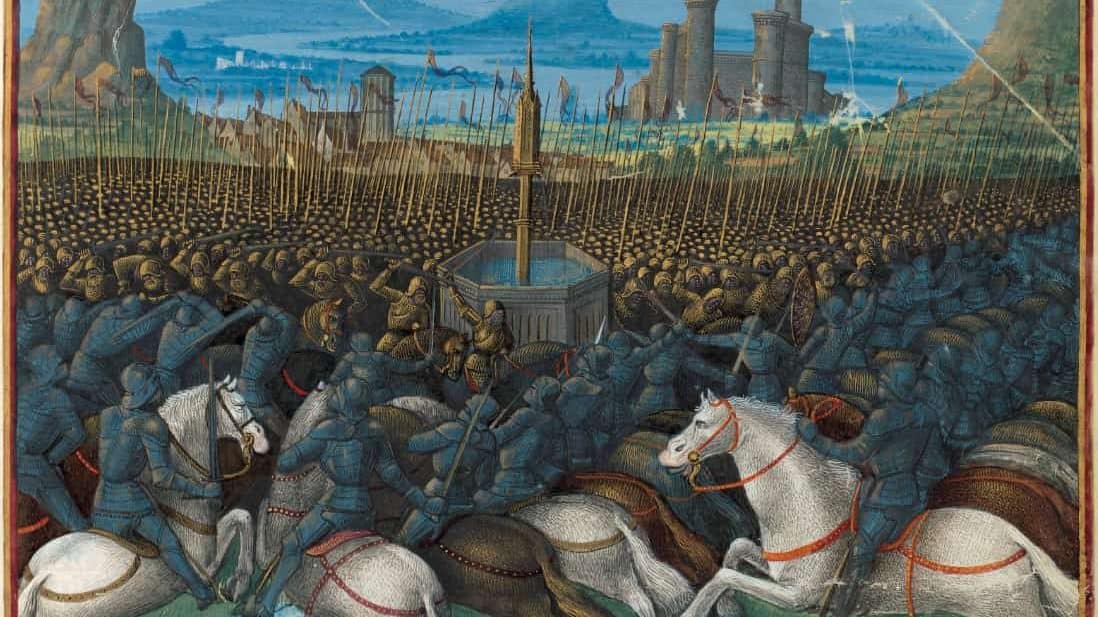Saladin, known as Salah ad-Din Yusuf ibn Ayyub, is one of Islamic history’s most revered and iconic figures. His life and accomplishments spanned the 12th century, and his legacy as a military leader, statesman, and champion of Islam endures to this day.
The Third Crusade
Early Life and Background:
First, Saladin was born into a Kurdish Sunni Muslim family in Tikrit, Iraq, in 1137 or 1138. Little did anyone know then that this young boy would grow up to become a formidable ruler and a symbol of Islamic unity.
Rise to Power:
So Saladin’s early career saw him serve in various military capacities under the leadership of his uncle Shirkuh, a general in the service of the Zengid dynasty. Furthermore, his initial years were marked by military campaigns and successes that would eventually bring him to prominence.
The Treaty of Jaffa 1192
The Battle of Hattin (1187):
In addition, Saladin’s greatest victory came in 1187 at the Battle of Hattin, where his forces decisively defeated the Crusaders led by King Guy of Jerusalem. This battle signaled the end of Crusader rule in Jerusalem and catapulted Saladin to the forefront of Islamic leadership.
Reconquest of Jerusalem:
After the victory at Hattin, Saladin proceeded to capture Jerusalem. Remarkably, he did so with a chivalrous approach, ensuring the safety and humane treatment of the city’s inhabitants and allowing Christian pilgrims access to their holy sites.
Saladin’s Leadership and Qualities:
Tolerance and Chivalry: Saladin’s conduct during and after the capture of Jerusalem earned him a reputation for tolerance, chivalry, and respect for other faiths. He treated his enemies with dignity and honor.
Unifier of Islam: Saladin is perhaps best known for his efforts to unite the Muslim world. He sought to bring together various Muslim factions and leaders, culminating in the establishing of the Ayyubid dynasty.
Scholarly and Cultured: Saladin was not just a warrior but also a patron of the arts and sciences. He valued education and culture, fostering an environment that encouraged intellectual pursuits.
Battle of Hattin

Legacy:
Symbol of Islamic Unity: Saladin’s name is synonymous with unifying the Islamic world against external threats. He is celebrated as a hero who reclaimed Jerusalem from the Crusaders.
Literary and Cultural Impact: Saladin’s life and achievements have been chronicled in numerous literary works, plays, and films. His legacy continues to inspire writers and artists.
Modern Relevance: Last, Saladin’s chivalry and respect for diverse religious and cultural traditions serve as a model for coexistence and diplomacy in the modern world.
In conclusion, Saladin remains a towering figure in history, admired for his military prowess and his character, principles, and vision. Moreover, his legacy as a noble warrior and unifier of Islam continues to inspire and resonate with people worldwide.







